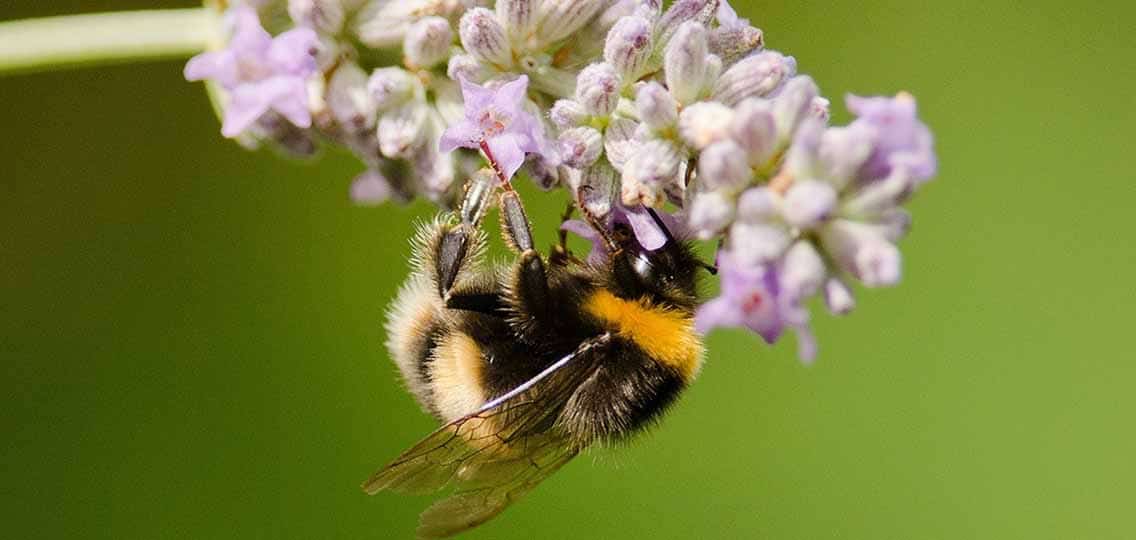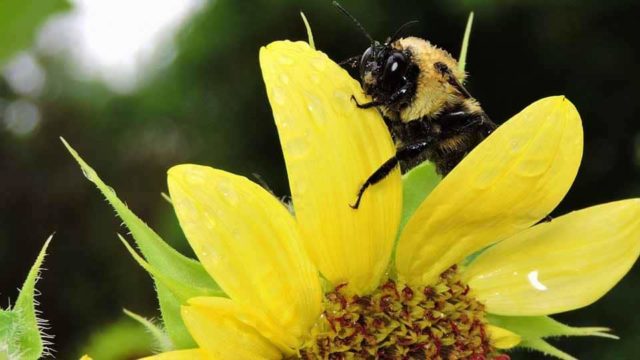Ecojustice lawyers were in court this month to make sure our case against bee-killing pesticides is heard. It was an exciting two-day hearing in a courtroom packed with Ecojustice supporters and no fewer than four teams of industry and government lawyers.
Our hard work paid off — the presiding judge dismissed the federal government and pesticide companies’ attempts to shelve our neonics lawsuit before it could be heard.
The Ecojustice team will now be busy at work preparing for the case to be heard on its merits.
We know that sound decisions must be informed by sound science. Neonics contribute to the decline of both honey and wild bees, shorten their lifespans, weaken colonies, and can even lead to colony collapse disorder.
Our case challenges the federal Pest Management Regulatory Agency’s (PMRA) continued registrations of neonicotinoid pesticides without the scientific information necessary to determine the pesticides’ risks to pollinators.
The motions to dismiss our case were heard shortly after the release of two significant studies published in the journal Science — both concluded that neonics harm pollinators. One, the world’s largest neonicotinoids study, showed widespread evidence of population decline and shortened lifespans in domesticated and wild bees populations exposed to neonics. A separate study conducted in Canada confirmed that prolonged exposure to neonicotinoids affects honey-bee health in corn-growing regions.
Neonics are synthetic chemical insecticides that are intended to control crop-destroying pests. However, they also threaten non-target organisms like native bees, which are responsible for pollinating one-third of the world’s crops and 90 per cent of all wild plants. And the science keeps mounting — just after our court appearance, a new study cropped up showing that neonics might be responsible for a severe decline in B.C. hummingbirds.
On behalf of our clients at Ontario Nature, Wilderness Committee, David Suzuki Foundation and Friends of the Earth Canada, we’re making sure that the government upholds its legal responsibilities as a regulator.
The federal Pest Control Products Act requires the PMRA to be certain that a pesticide will cause no harm to the environment before permitting its use. More than a decade ago, the PMRA granted “conditional” registrations for two neonicotinoid pesticides, delaying its review of important scientific information on the pesticides’ risks to pollinators. Years later the PMRA is still waiting for studies sufficient to justify “full” registration of the pesticides.
The courtroom was packed for this latest hearing — a testament to the legion of people who expect science to guide the regulation of harmful pesticides. Some of our supporters also took the time to shower praise on the dynamic legal duo behind this case, lawyers Charles Hatt and Julia Croome:
Just wanted to let you know that I had an opportunity to witness the first part of the proceedings earlier this morning. Charlie was amazing! He carefully choreographed his presentation for the judge, speaking clearly, confidently and with great mastery. He has fine oral advocacy skills, knowing when to slow down (to allow the judge time to write), when to use colloquialisms for dramatic effect and how to tell a compelling story even when the facts are complicated or dry sometimes. I was very proud of him and it also reinforced my pride in belonging to Ecojustice. Bravo!
-Neville
When it comes to our environment, we recognize that an “act first, think later” approach can be incredibly harmful. That’s why we’re thrilled that our case to protect pollinators will proceed to a full hearing — the result of hundreds of hours of preparation and hard work by the Ecojustice team.
When you support Ecojustice by sharing our work with your friends or family or making a donation, you make sure we have the ability to take on important cases like this. Thank you!


